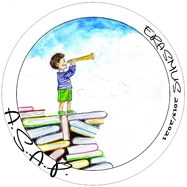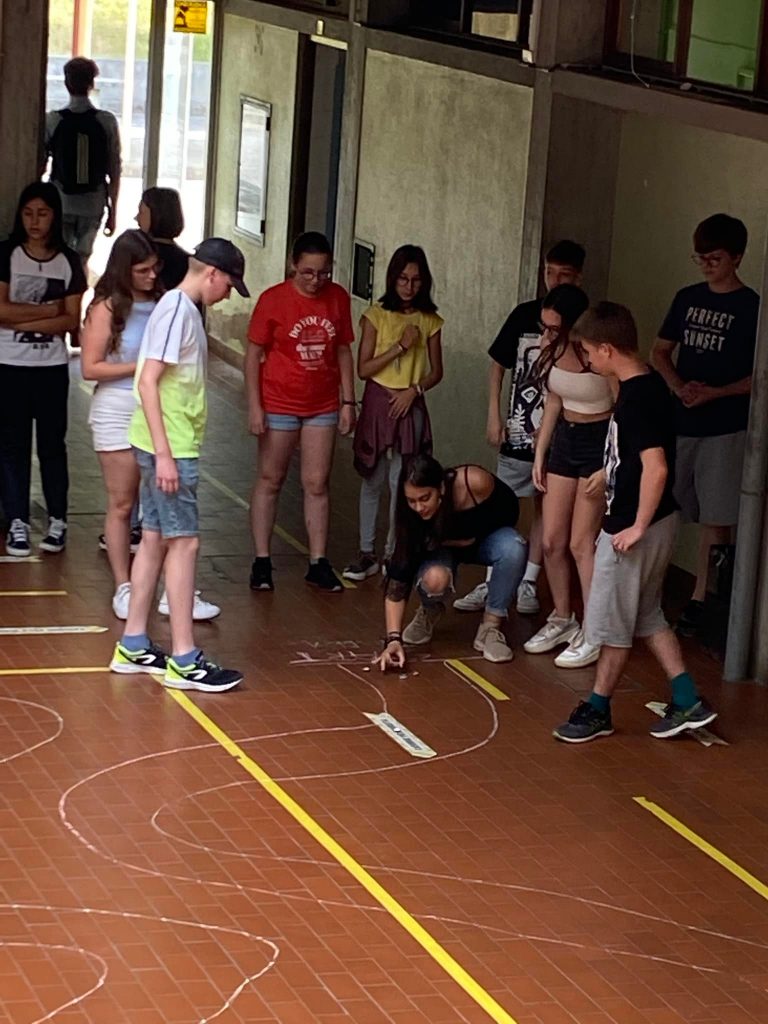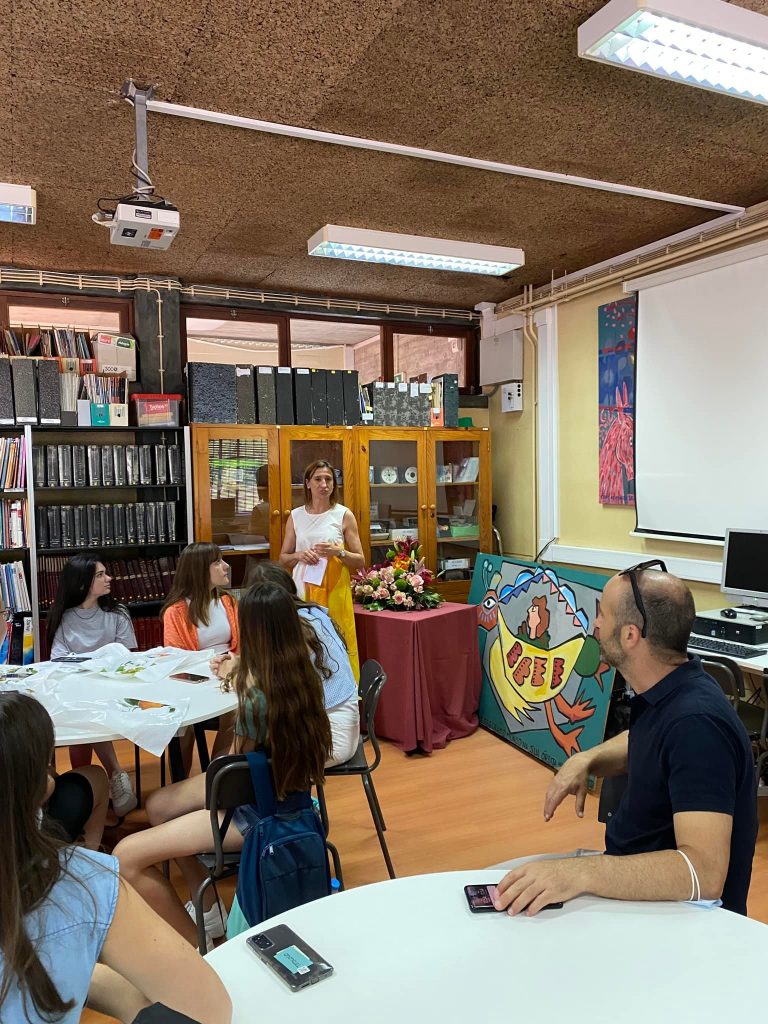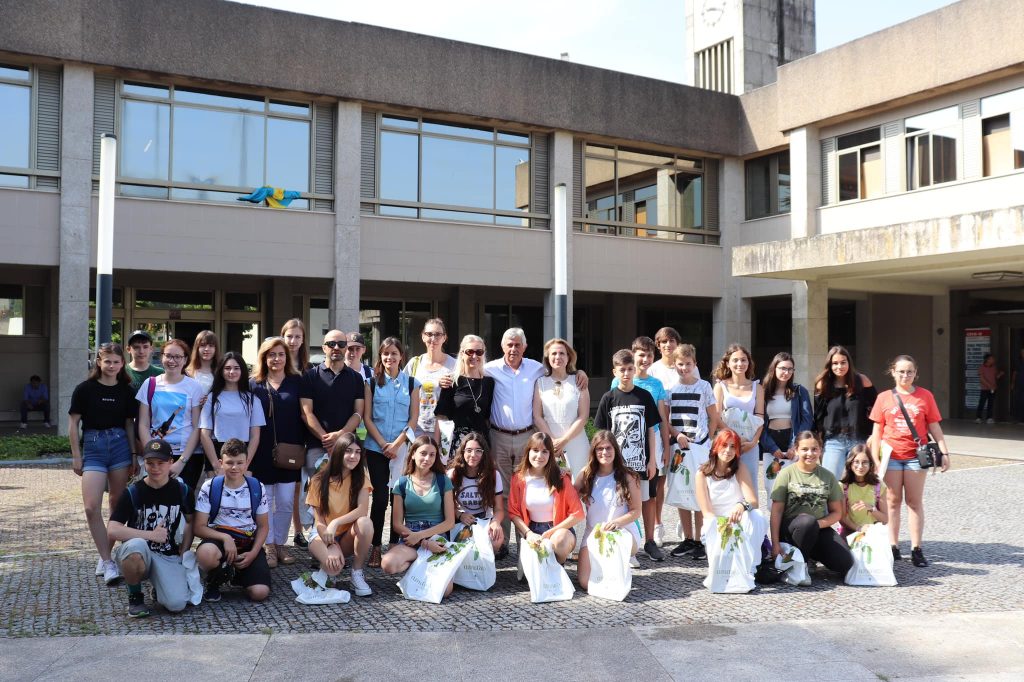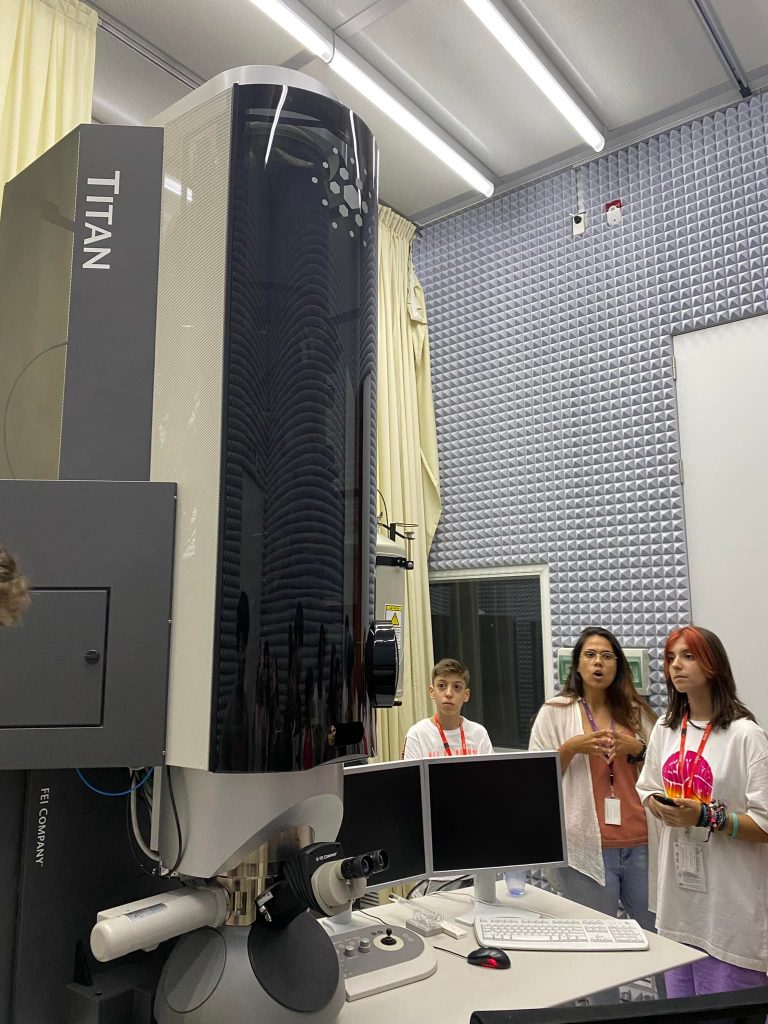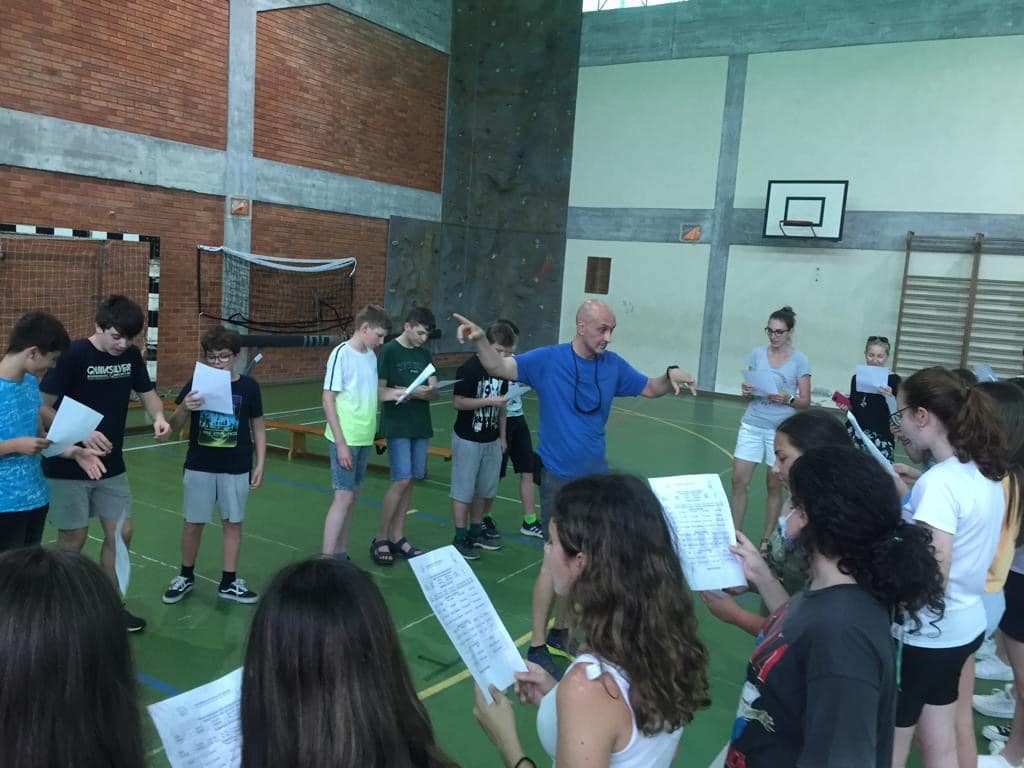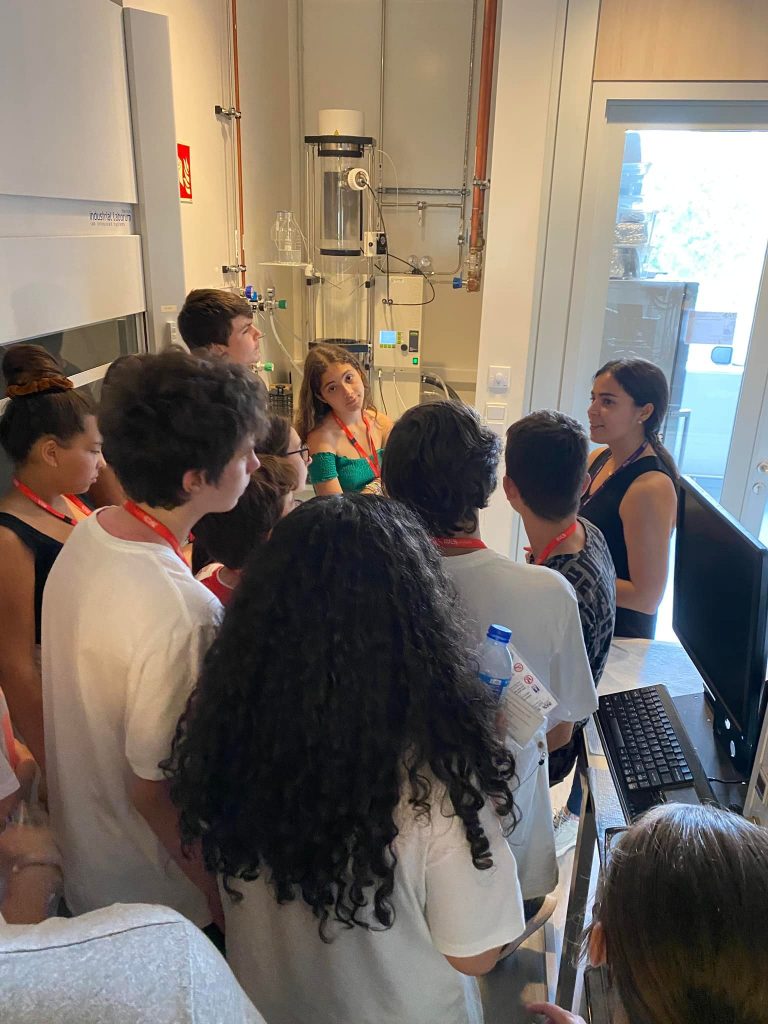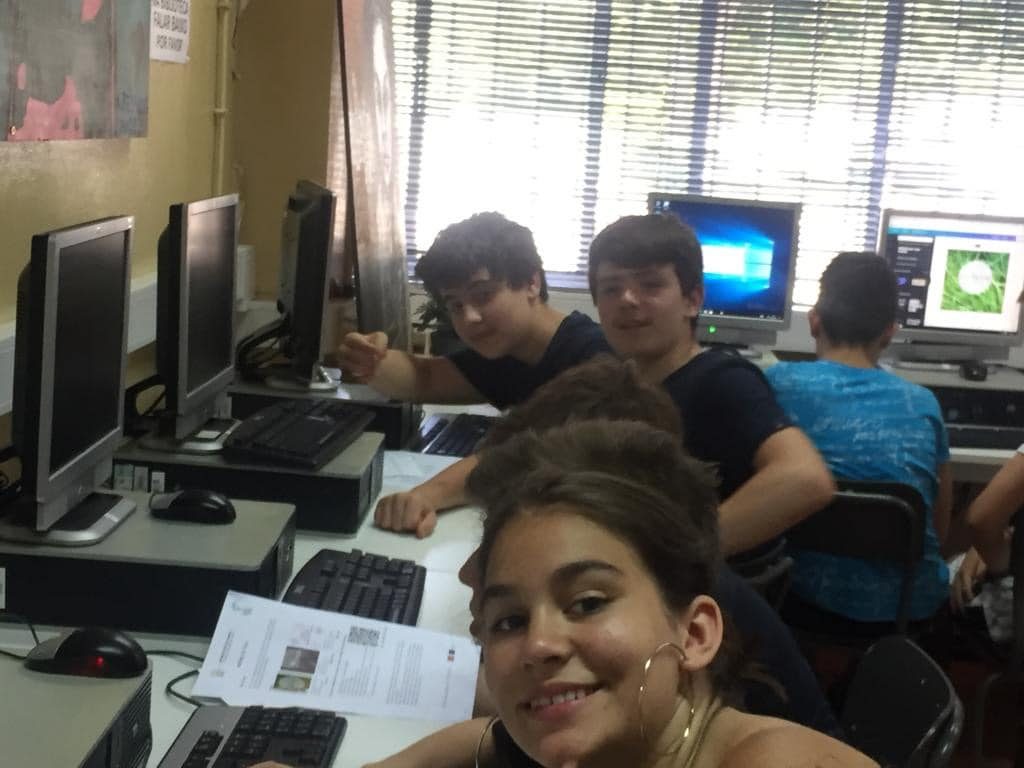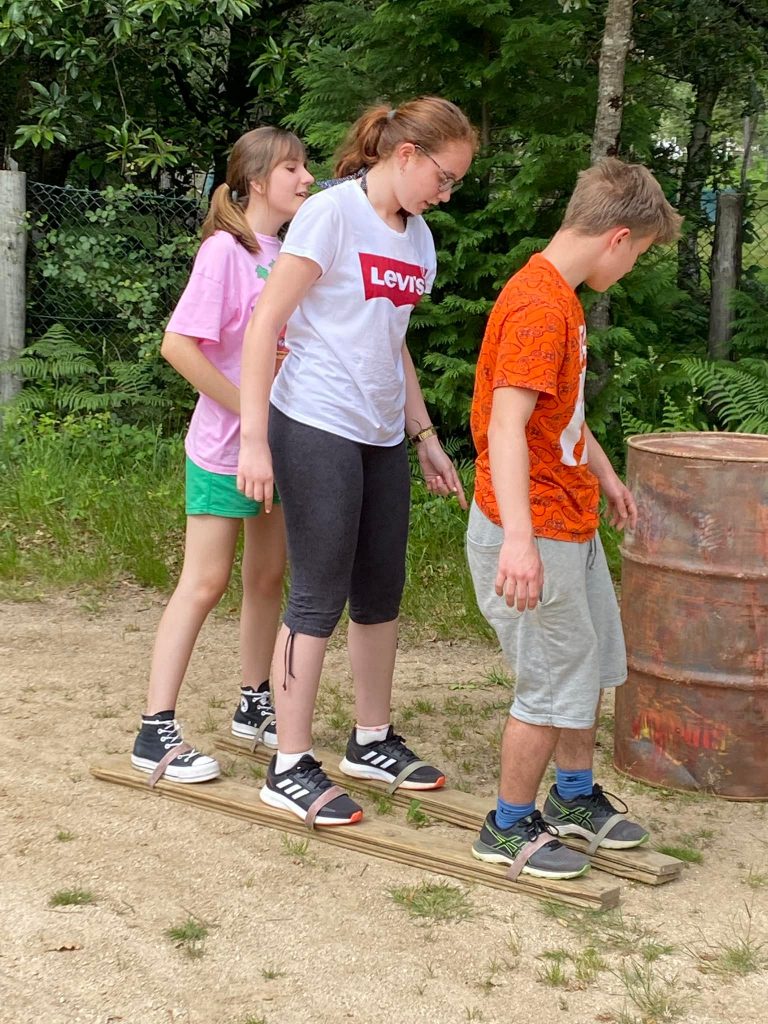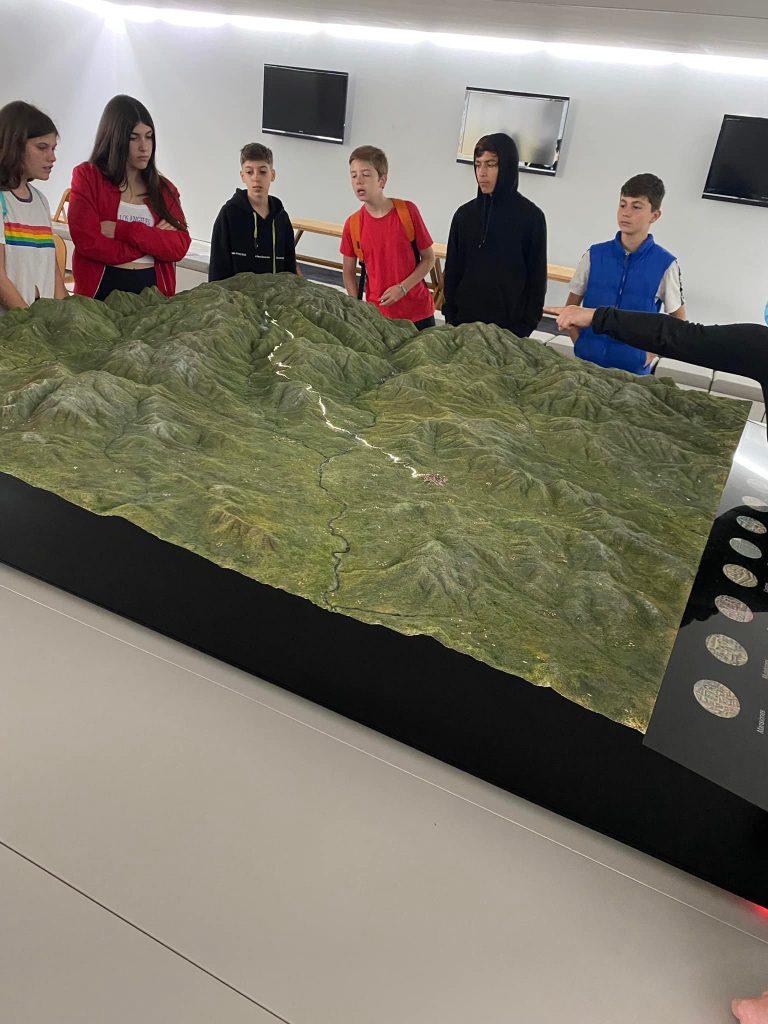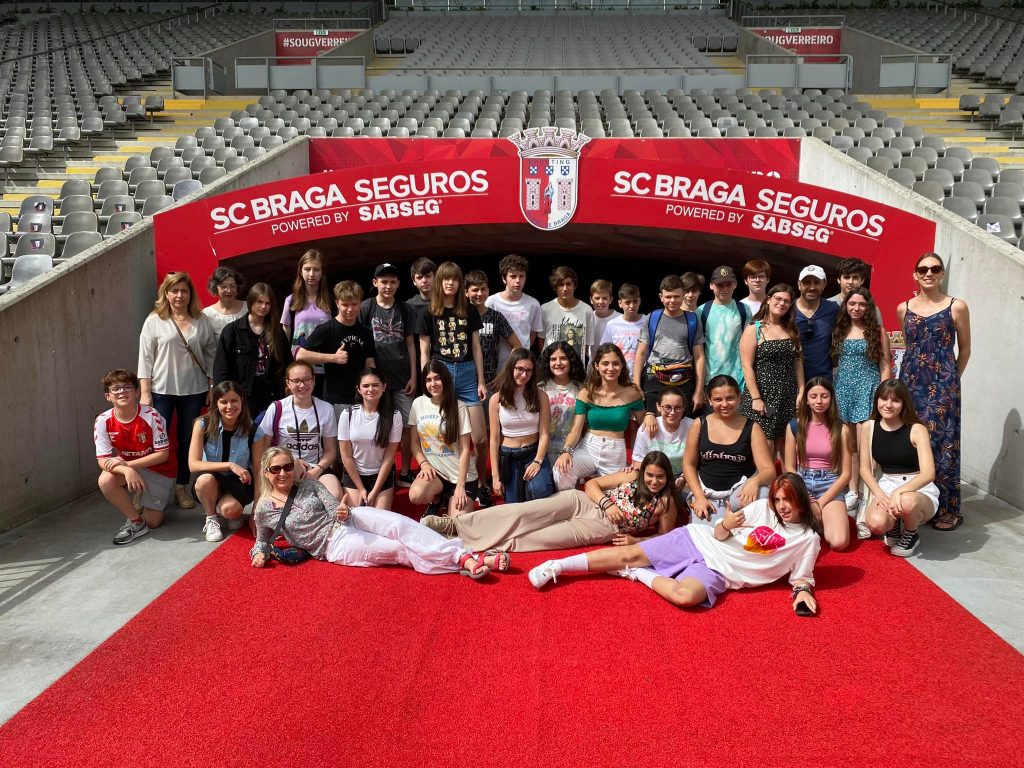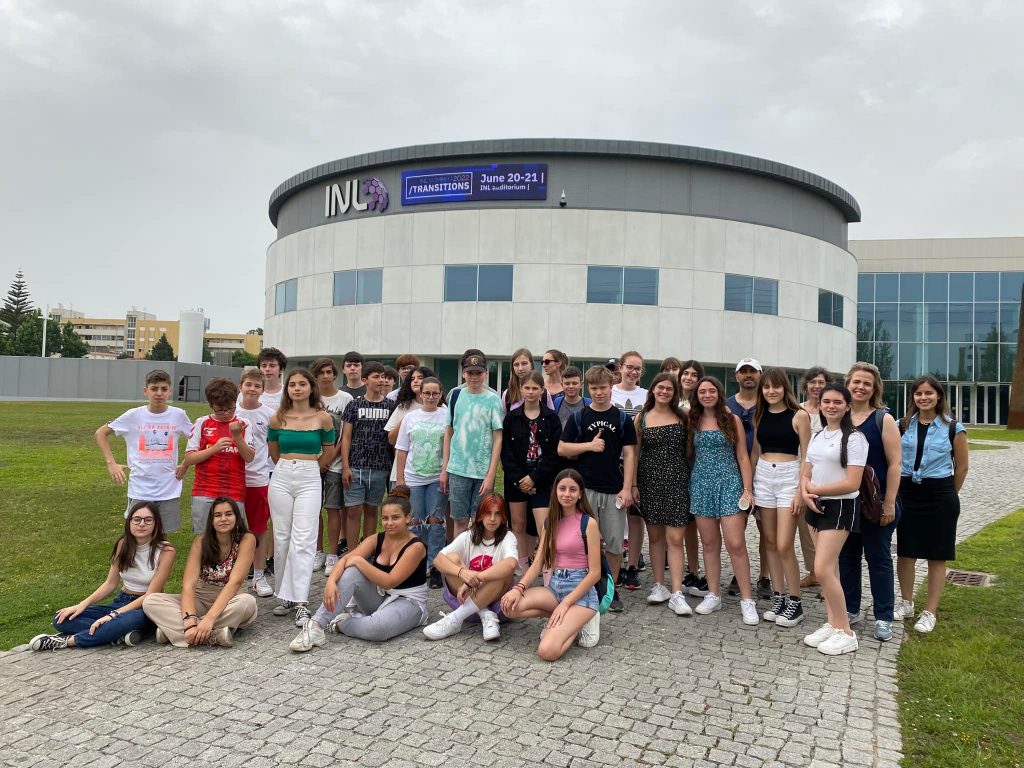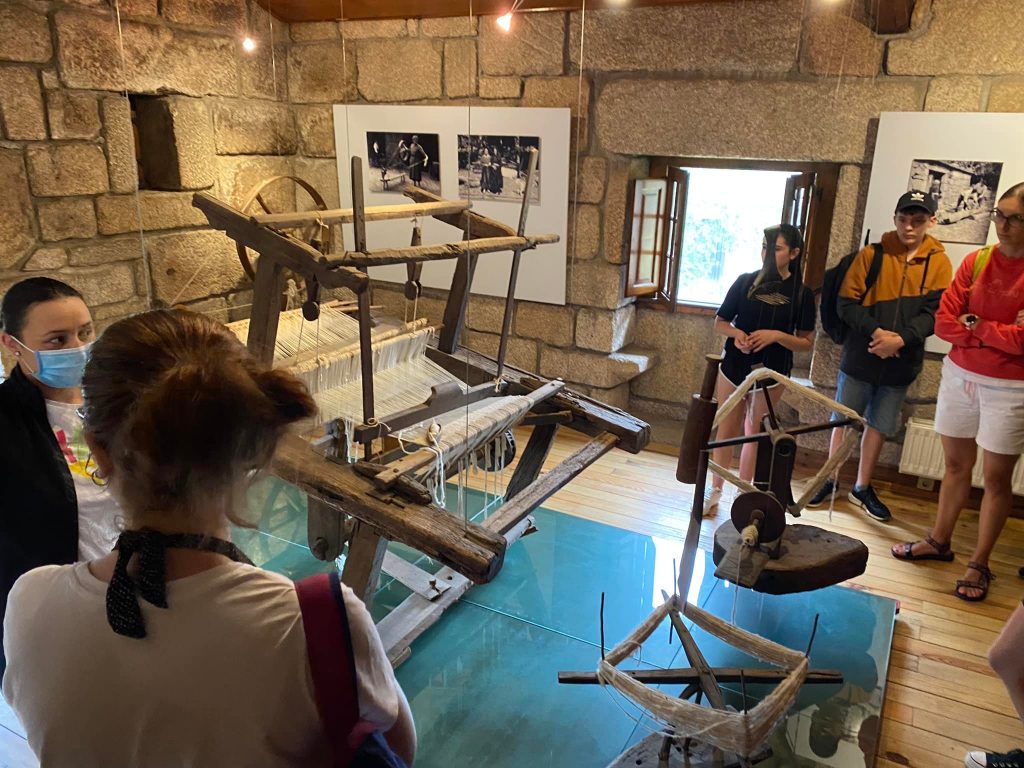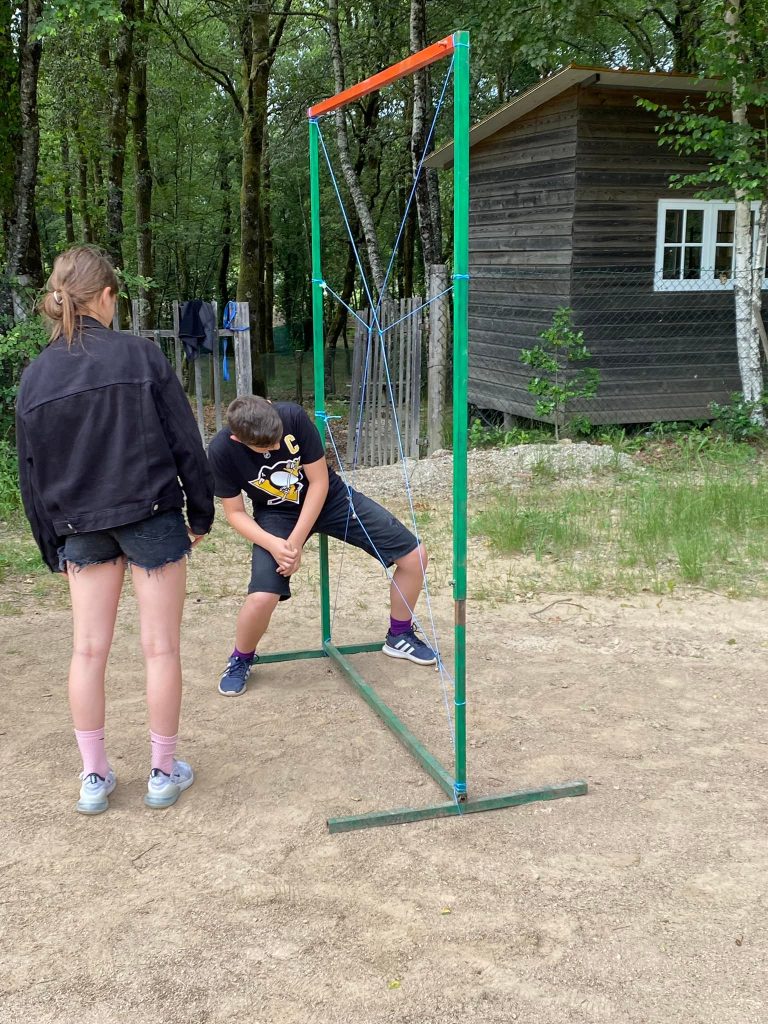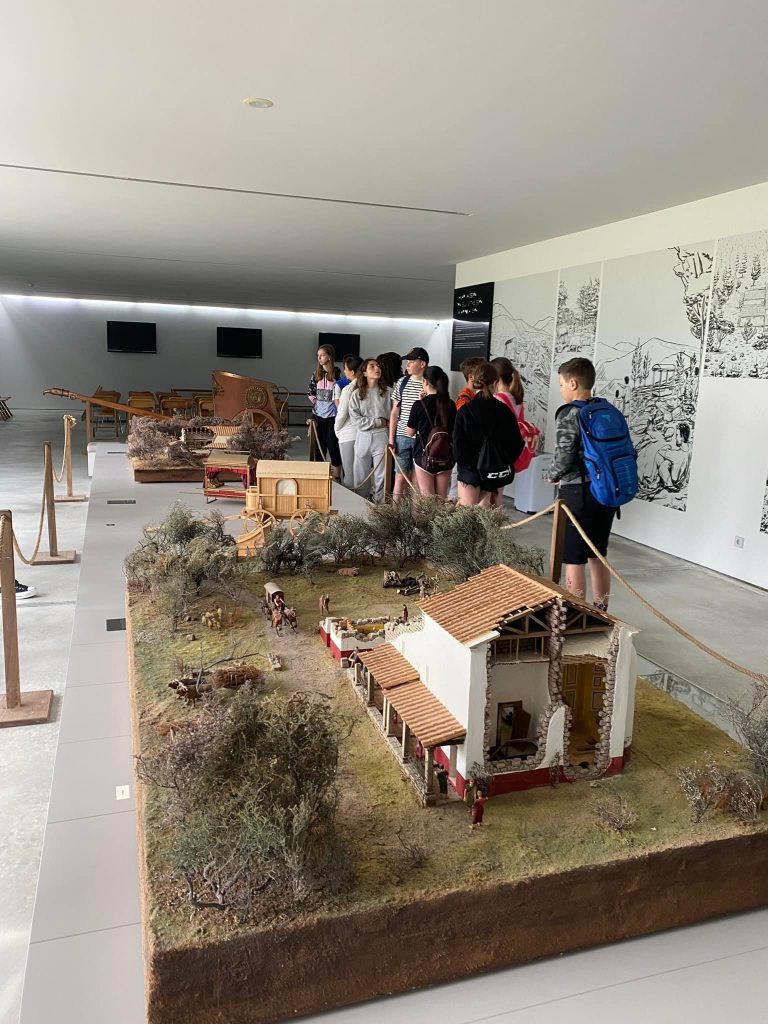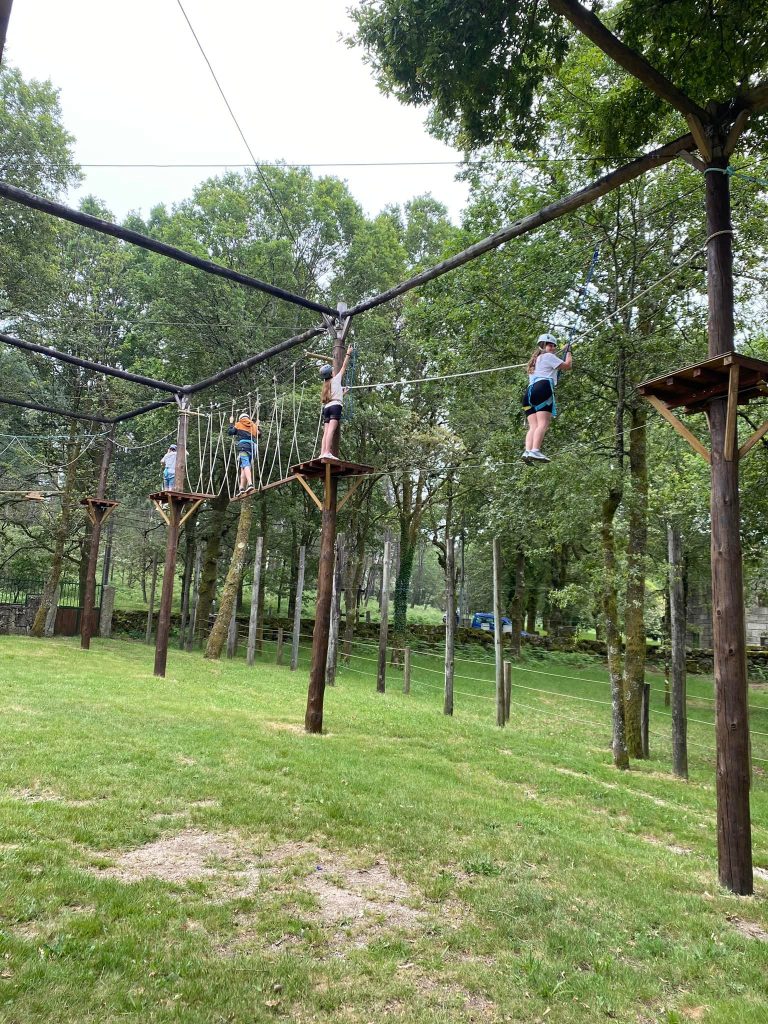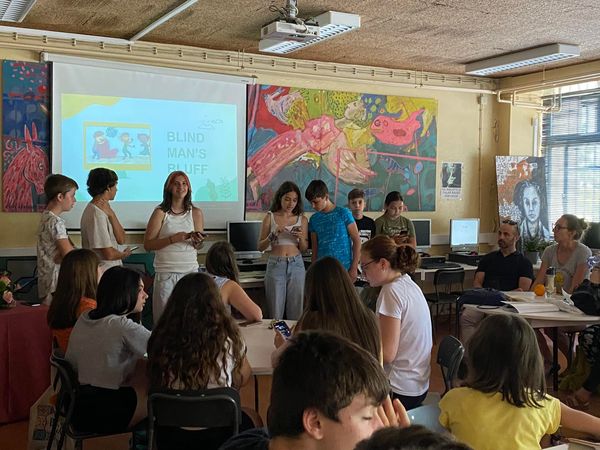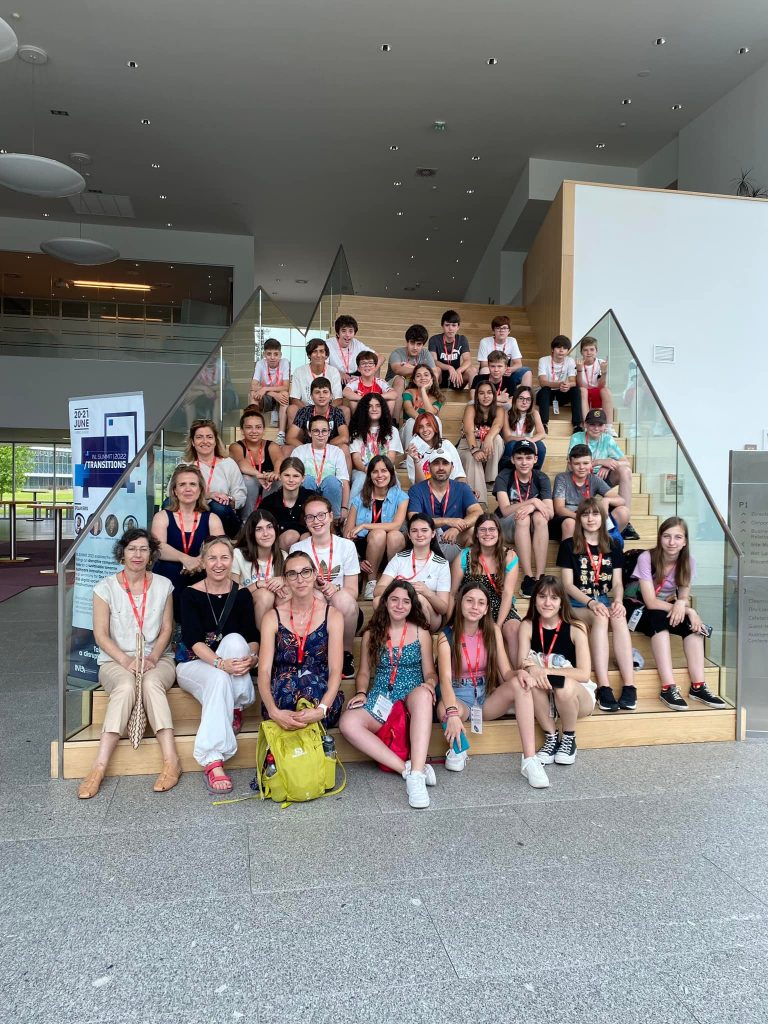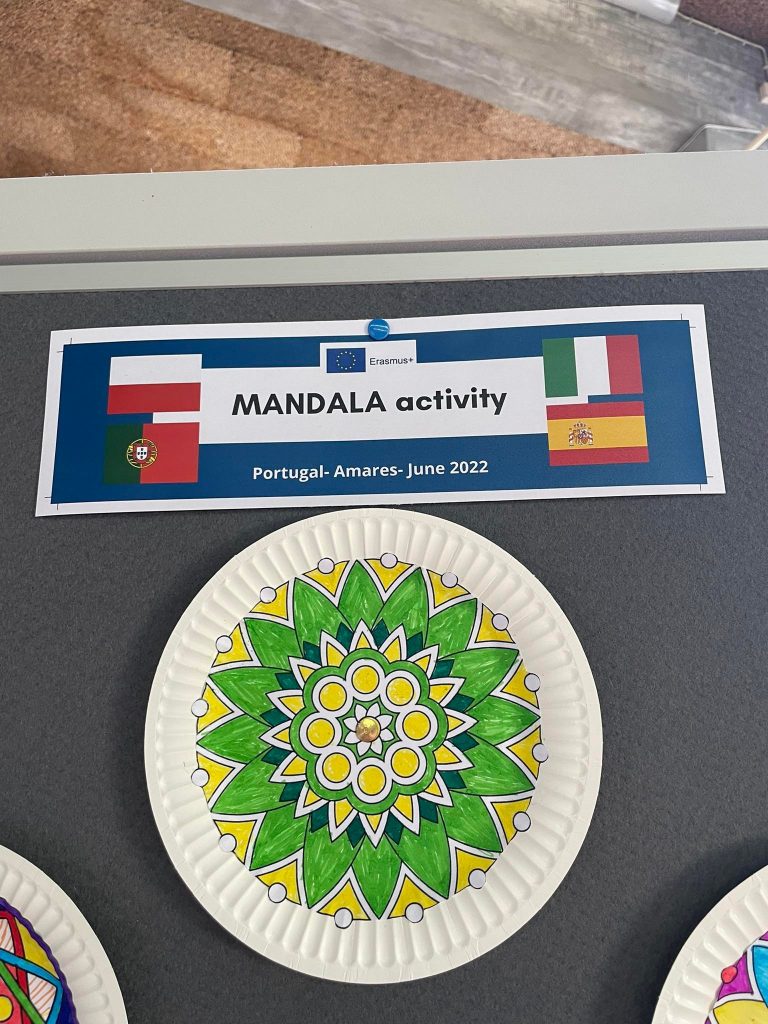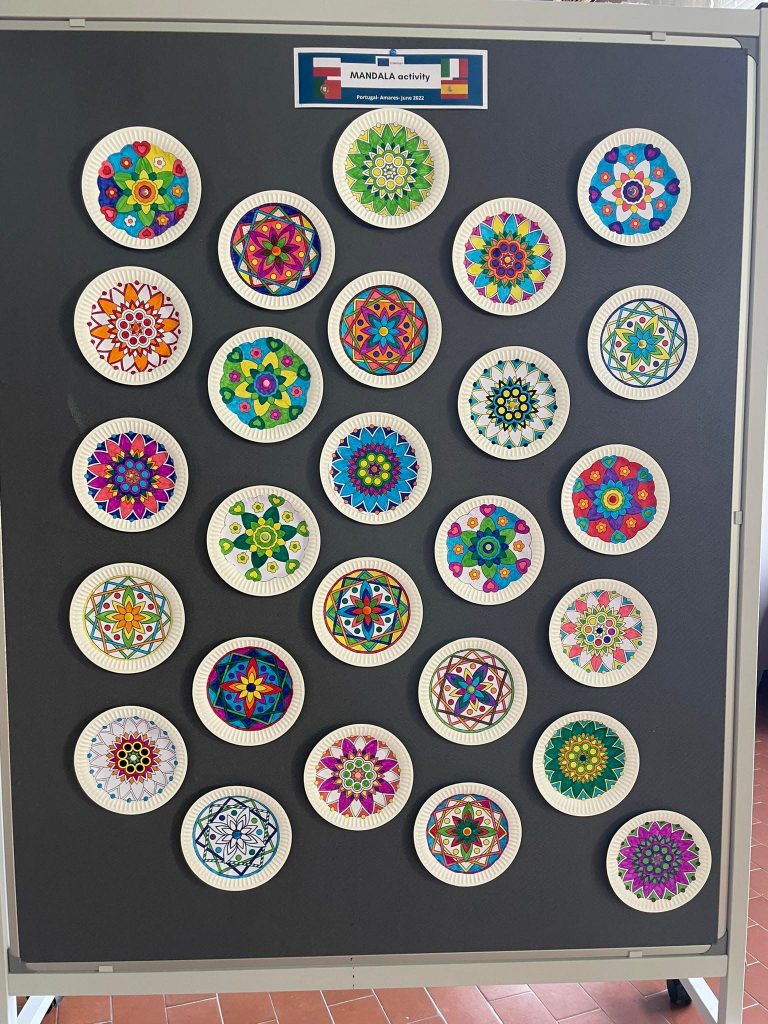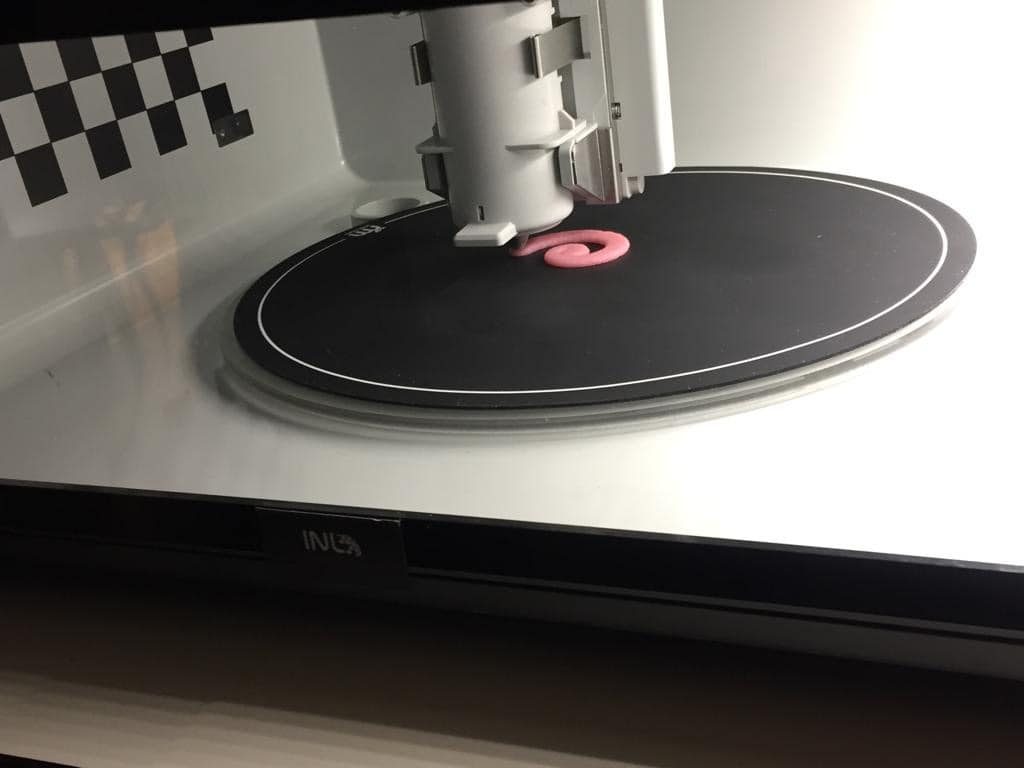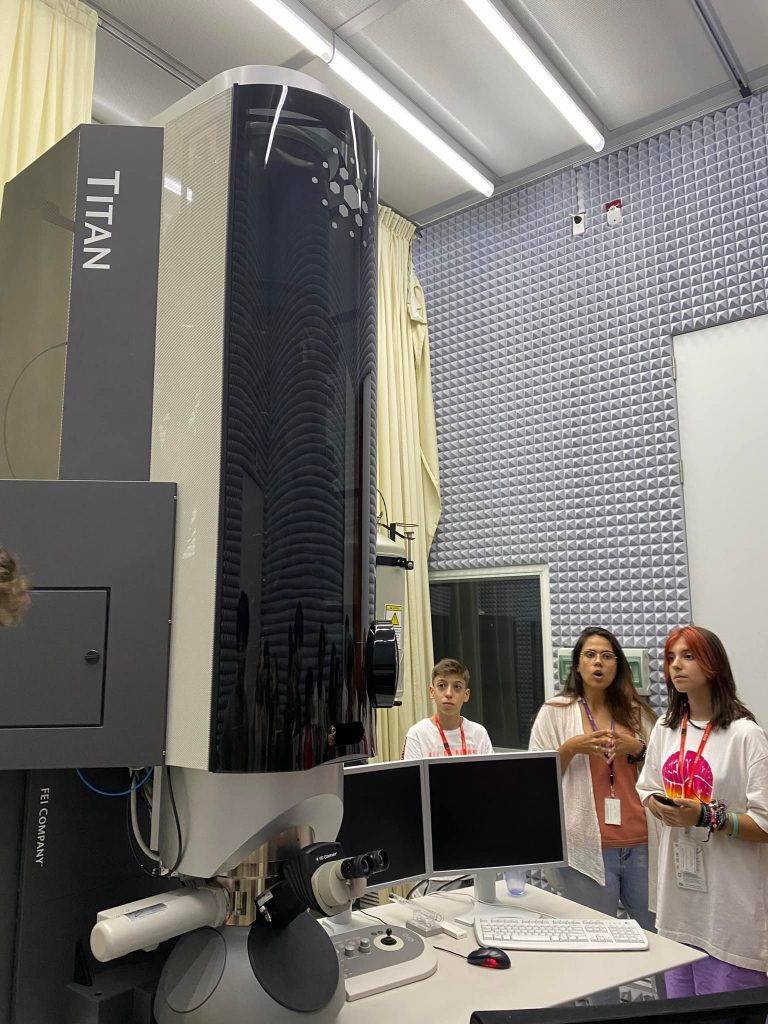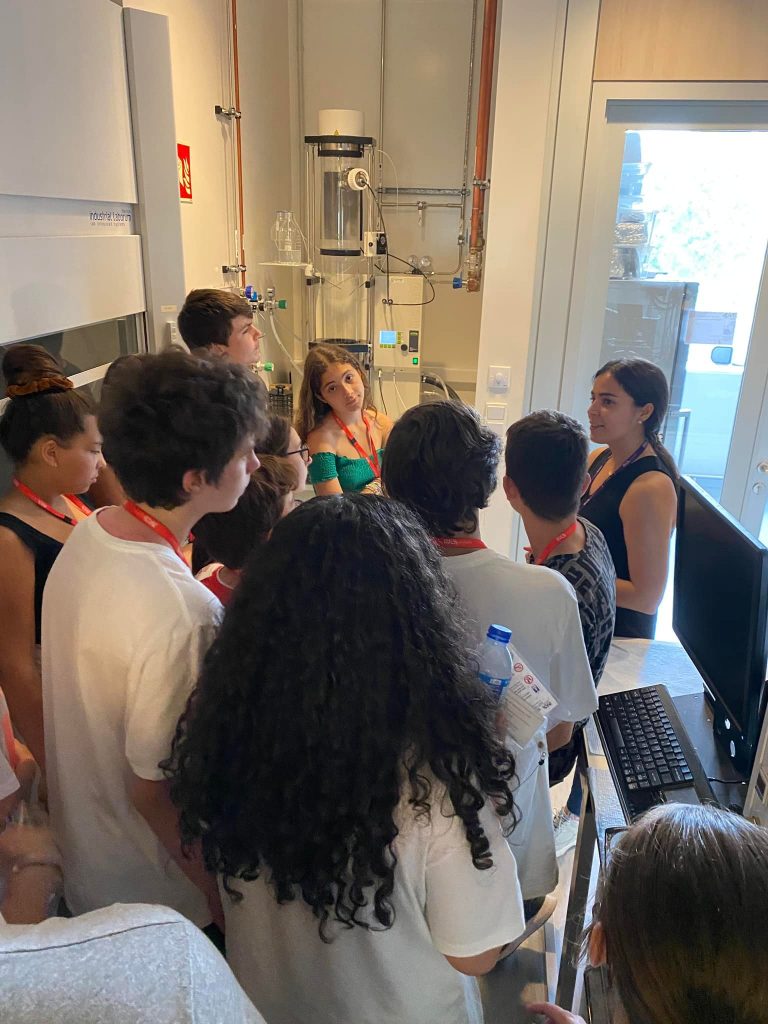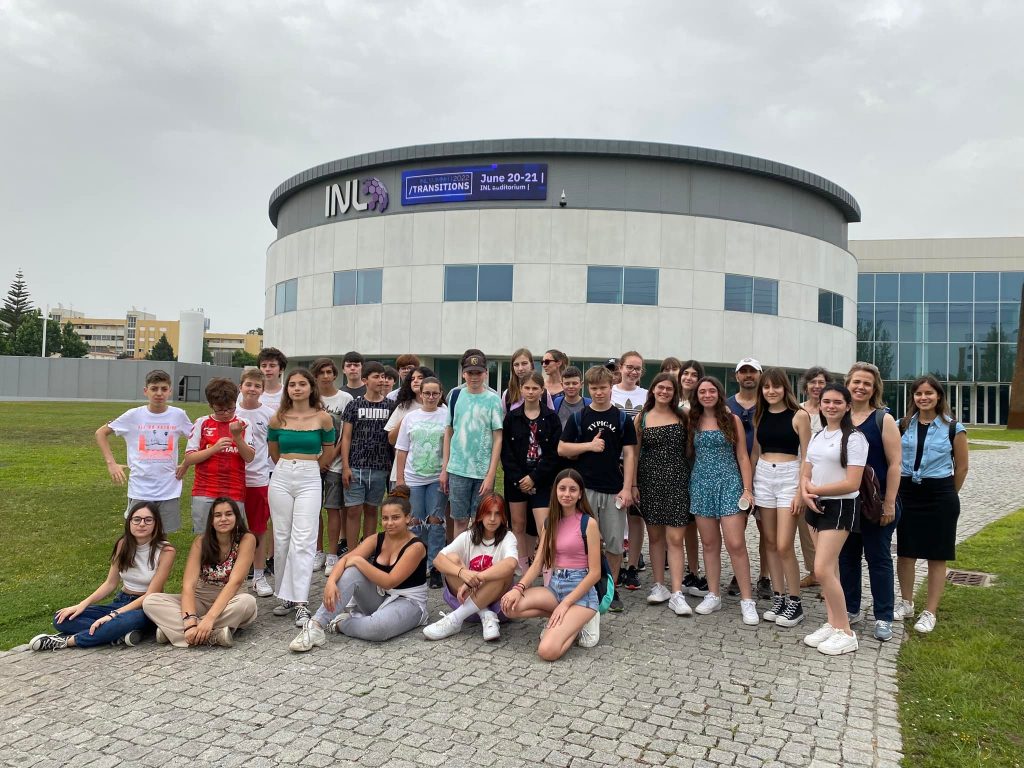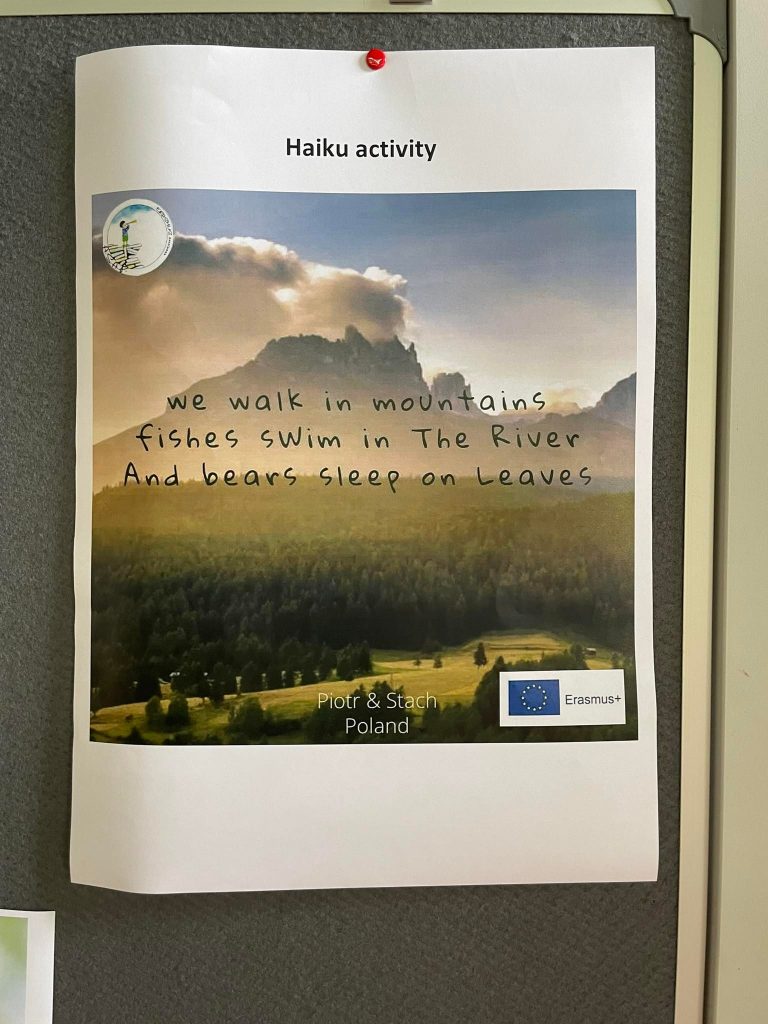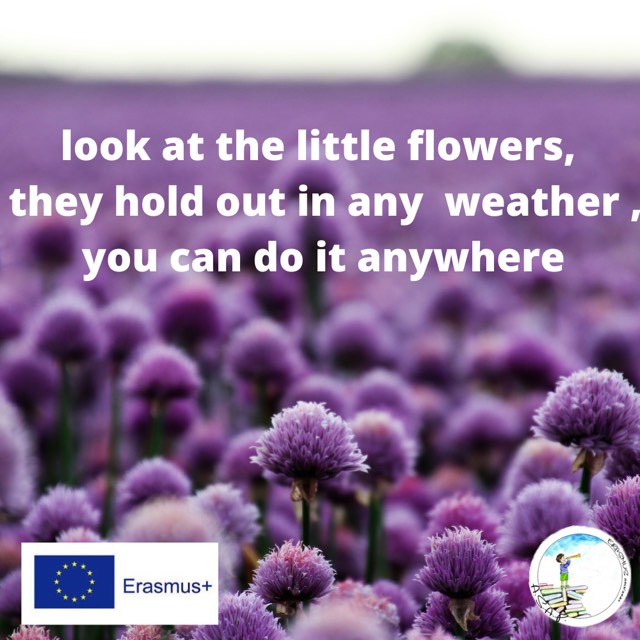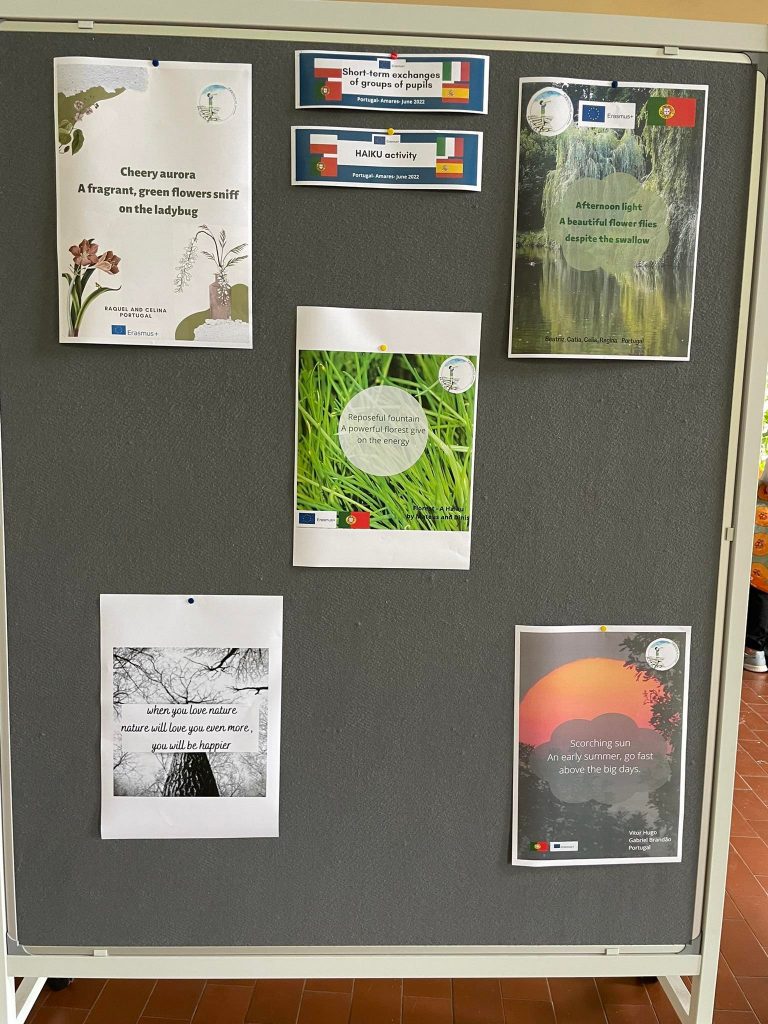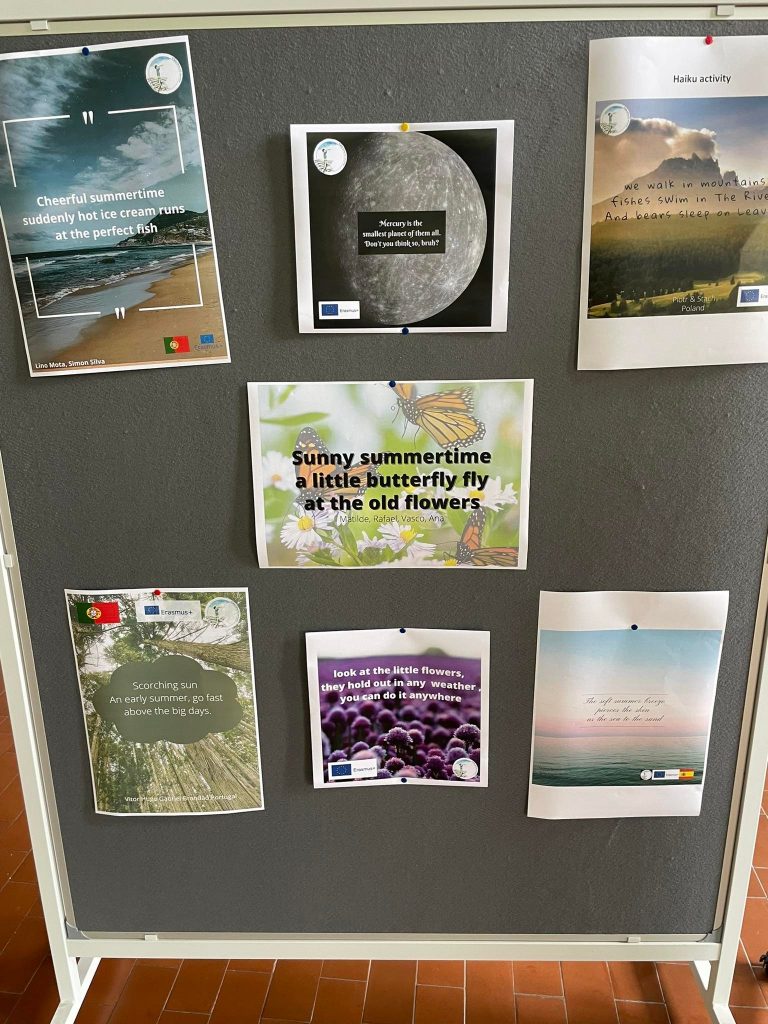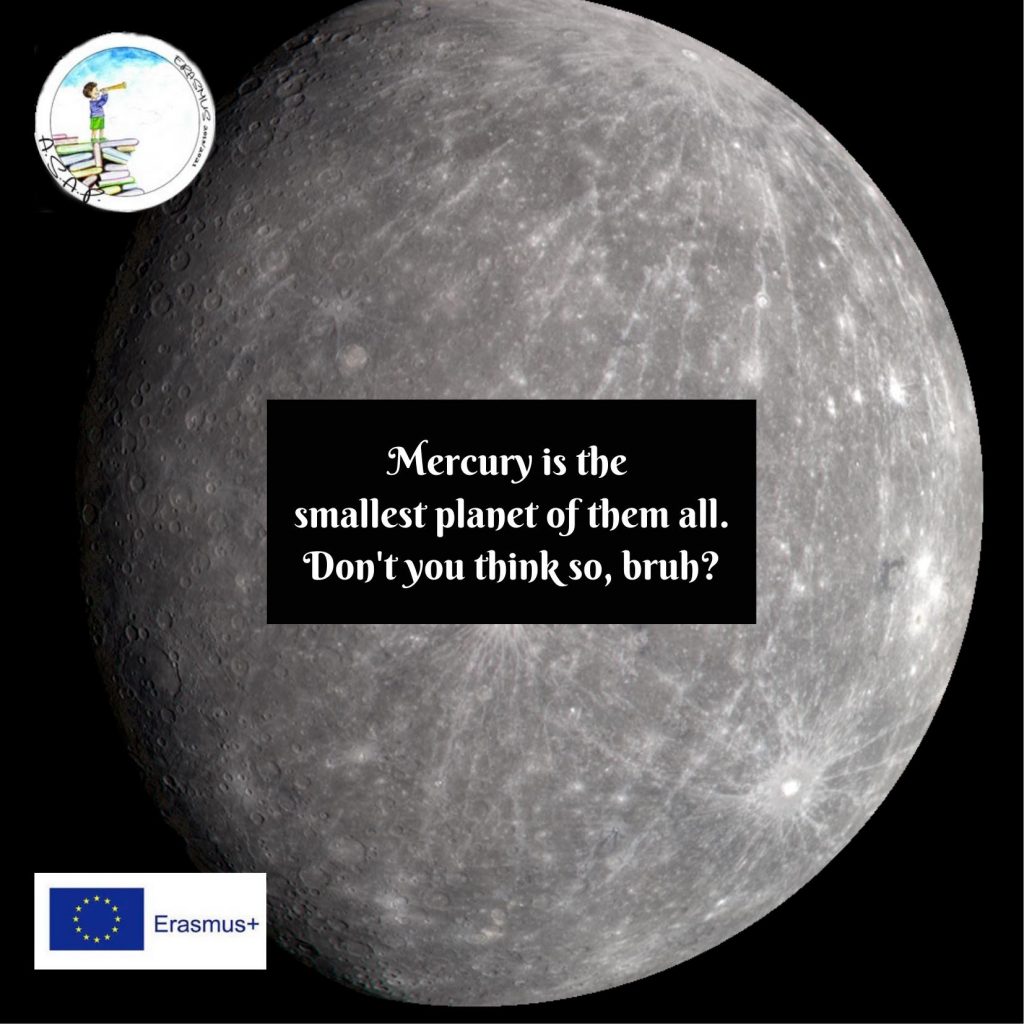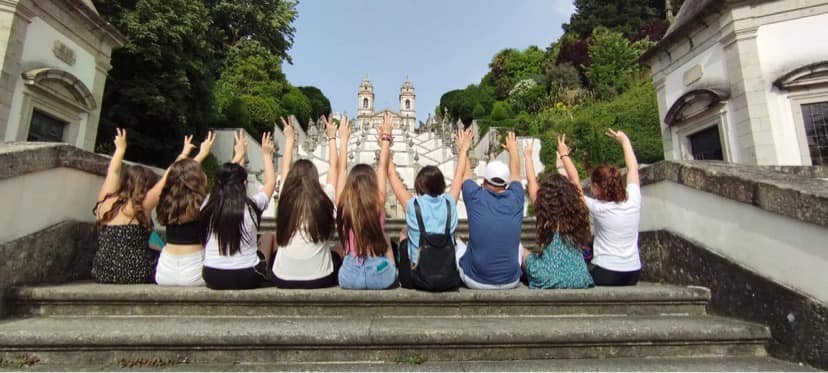
As the project intended to develop activities concerned to the well-
being of students, such as doing sport, developing strategies to manage stress in their life and having a right diet, the activities in Portugal, more specifically in Amares, were focused basically in sport and mindfulness. All activities were based in an expository, questioning and active methodology, which means that students tried a practical experimentation most of the
times. During the short-term exchange of groups of pupils, Portuguese, Polish and Spanish students, 38 in total, presented their traditional games and shared their features using ICT tools. Next they developed creative writing creating haiku poems and learned some strategies for
relaxing, making specific noises and movements.
The day after, students visited the Stadium, the Museum and Sports City of Sporting Club of Braga, a very important team in Portugal. They had the chance of taking photos in the VIP room, walk around the pitch and sit in the ends. While at the Museum, students were able to be acquainted with the club history as well as admiring the cups the team has won through the
years. Then, they walked to the club Sports City, whose aim is to prepare young boys/girls to become successful footballers. The students visited the facilities and enjoyed a fantastic view of the city, from the building terrace.
The club provided a guide, who kept the students’ interest in the visit, by informing them of some fun facts and curiosities about the club history, football players or even about the building.
The students also visited INL (International Nanotechnology Laboratory) a highly considered laboratory
After this visit, students observed how water can be an element that helps to move a funicular by pushing it up and down on the hill of Bom Jesus.
On Thursday, students went to the mountain of Gerês and tried traditional games developing a competition, photo paper (a kind of game of adventure and hunting of the picture inside the nature), Adventure camp (tree climbing) and visited the museum of Gerês, where it was
explained all the specific areas of Gerês as well as all biological species and different rocks.
How did the participation in this activity benefit the involved participants?
Participants benefited from a very comprehensive experience in the field of sport, well-being and health. In fact ,experimenting mindfulness practices, as a strategy to manage stress in everyday life, exploring and performing simple traditional games, which are suitable for family time and nature, learning about the techniques of vitamin improvement in food processing, finding out about writing and painting strategies aiming relaxation, allowed them to realize they have a wide range of activities to choose from, as a means of managing their well-being, whether in their school or family life.
